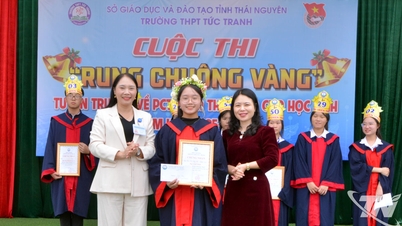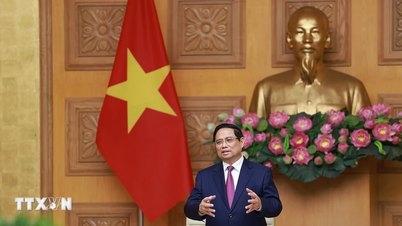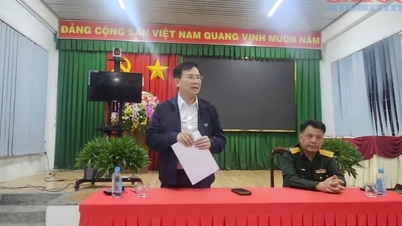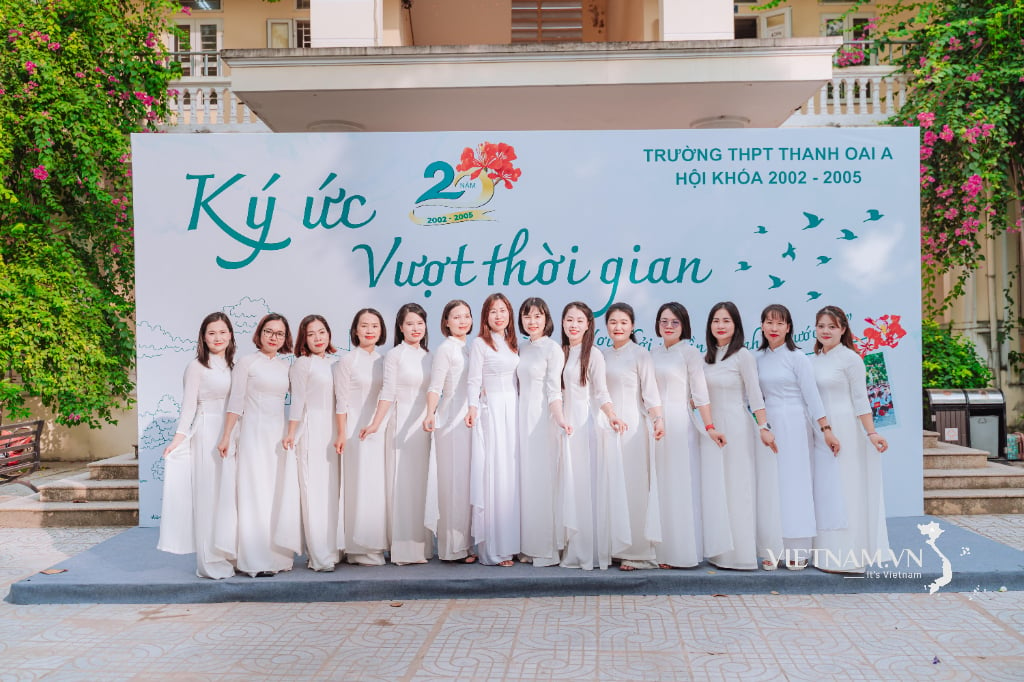Royalties is a Sino-Vietnamese word, a combination of two words: rent (润) and pen (笔).
Nhuận (润) belongs to the water radical, has a sound shape ( Luc Thu ), and its original meaning is "rainwater flows down, nourishing all things" ( Thuyet Van ). In Quang Nha , nhuận means "to soak, to wet" ( Nhuyên, tí da ); and in Dich. He Tu , nhuận means "to moisten with wind and rain" ( Nhuyên chi di phong vũ ).
The character "Bit" (笔) belongs to the bamboo radical and is composed of ideograms ( Six Books ). This character first appeared in Oracle Bones, and its original meaning is "writing with a tool made from bamboo tubes and animal hair", that is, "mao bi " (a brush pen) ( Ritual Records. Ritual Song ). Later, "Bit " expanded its meaning, referring to "works such as calligraphy, paintings, poems, and essays written or drawn with a pen" ( Bao Phac Tu. Bien Van by Ge Hong); "prose" ( Du Tuong Dong Vuong Luan Van Thu ); "brushwork" ( Graphics by Cai Nguyen Boi).
The term "royalties" originates from an anecdote in the Zhengyi Biography of the Sui Dynasty (volume 38), which tells of how, after Emperor Wen of Sui restored Zhengyi's title, the high-ranking officials demanded compensation for Zhengyi's works, citing the "pen was dry". This gave rise to the saying "wet the pen".
In ancient times, scholars and officials valued nobility and were reluctant to mention money. When necessary, they called money "a do vat" (阿堵物), meaning "this thing that hinders". "A do vat" is a phrase used to refer to money, originating from the story of Wang Yan in the Jin Dynasty. Later, this word was replaced by the term "royalty".
According to Baidu encyclopedia, the word "royalty" (润笔) originally referred to "the process of soaking a brush's bristles in clean water before use to soften and absorb ink", and later developed into an elegant term, referring to material or monetary payment to authors of poetry, calligraphy, and painting.
In ancient times, to earn royalties, literati often composed documents for the royal court or wrote birthday greetings for the living or wrote epitaphs for the deceased. Han Yu was a very famous epitaph writer, he often wrote for high-ranking officials with "the price of one word is as high as a mountain of gold" ( the price of one word is as high as a mountain of gold ). Du Mu, the writer of Vi Dan Giang Tay di ai bi (The love stele left behind by Vi Dan Giang Tay), received 300 rolls of silk...
In the book Song Dynasty Su Shi Loai Uyen , there is a passage that says that Emperor Taizong of Song established a special fund called "royalty money" (润笔钱), used to reward literati in the imperial court.
In general, royalties in ancient times were paid in many forms, including gold, silver, grain, goods, and cloth. Some poets liked to receive special rewards, for example, Wang Xizhi liked to receive geese as his royalties, Li Bai asked for wine, and Su Dongpo happily accepted mutton.
It is rumored that the highest-paid work in history is the poem "Changmen Fu" by Sima Xiangru of the Western Han Dynasty. Empress Chen paid 100 kg of gold for this 633-word poem.
By the Ming and Qing dynasties, "royalties" had become fully established, mainly in monetary terms.
In our country, the word "royalty" appeared at the latest in the 19th century, and was recorded in the book Dictionnaire annamite-français by Jean Bonet, published in 1899 (p.48).
Source: https://thanhnien.vn/lat-leo-chu-nghia-nhuan-but-nghia-la-gi-185250912203215207.htm





































![[Photo] Da Nang: Hundreds of people join hands to clean up a vital tourist route after storm No. 13](https://vphoto.vietnam.vn/thumb/1200x675/vietnam/resource/IMAGE/2025/11/07/1762491638903_image-3-1353-jpg.webp)











































































Comment (0)